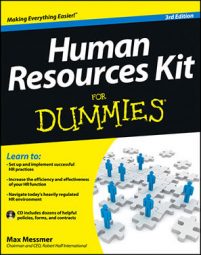Job fairs are recruiting events that bring together employers and potential employees in one location. They’re not only held on college campuses but also sponsored by professional associations and community organizations or non-campus educational institutions such as state teachers associations.
The sponsoring group rents a meeting or exhibition space, invites potential employers to set up recruiting and/or information booths and tables, and handles all the administrative and publicity arrangements. Sometimes the sponsors charge admission fees to defray expenses. Most job fairs are held on a single day or over a weekend, but some fairs can run as long as a week.
Generally, job fairs focus on a particular industry or professional group — computer engineers, teachers, or recent college graduates. Properly run job fairs resemble trade shows or conventions and have the same lively atmosphere and buzz.
The main downside of job fairs is their competitive aspect. Because job fairs are usually regional and industry specific — IT professionals in Boston, for example — they tend to attract firms from your region who are looking for the same folks you’re looking for. You may well end up with your company’s booth located just down the aisle from your main local competitor.
This proximity means that potential job applicants can directly compare your company with your nearest competitors simply by walking across the room.
This isn’t a problem, of course, as long as you’ve made every effort to make the strongest impression possible. Here are some suggestions:
Put your best foot forward. Whether you’re going to be greeting applicants at a booth or a table, you want to make sure that the general impression you’re conveying is one of quality and professionalism.
The promotional information you distribute doesn’t necessarily have to be expensively designed and printed — and you don’t have to invest vast sums in elaborate posters or audiovisuals. Just make sure that everything you do with respect to your booth or table is neat, substantive, and well organized.
Send good company ambassadors. The people staffing your booth or table should not only be able to handle all questions attendees are likely to ask about your company but also be enthusiastic and personable — the kind of people potential employees will enjoy meeting and, possibly, would enjoy working with.
Remember, too, that having senior people as part of your recruiting team tells applicants that your company takes potential candidates and the job fair seriously.
Keep the paperwork down. Instead of requiring applicants to fill out lengthy applications, put together a simple form that takes only a minute or two to complete. You’ll have the opportunity later in the recruiting process to gather more detailed information.
Your diversity outreach efforts also can be a way to make recruiting an ongoing process. Booths at ethnic and cultural community fairs or events, for example, can serve both marketing and recruiting purposes.

